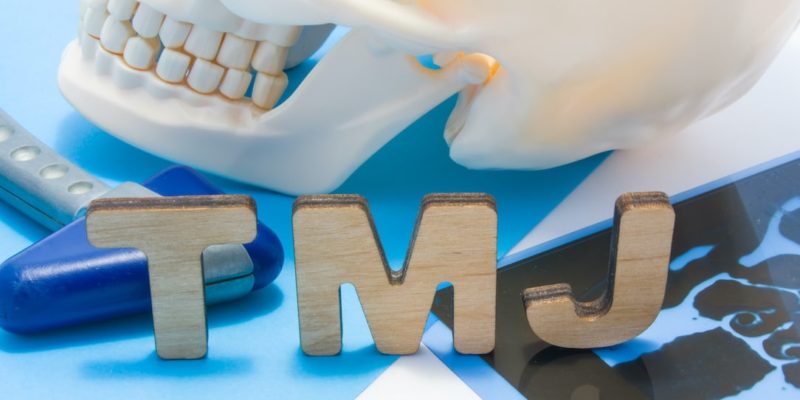TMJ Awareness Month: What You Need to Know

November is TMJ Awareness month. TMJ is the temporomandibular joint and it is what is responsible for opening and closing the jaw. Over 10 million Americans suffer from TMJ disorder, which can cause severe pain, trouble eating, and even difficulty talking. If you suffer from TMJ, don’t wait any longer to make an appointment. Dr. Ania can help — here’s how!
What is TMJ?
Temporomandibular joint disorder is referred to as both TMJ and TMD. No matter the name, it is the same condition that has to do with pain caused by the joints in your face. The muscles, tendons, and ligaments are all types of connective tissues that pull on your bones and allow them to move. However, they can only move because of your joints. The joints, which are the hinges that connect bones to one another and allow bones to move and pivot separately, can unfortunately become a problem for many people.
The temporomandibular joint is found in your head and is what connects the temporal bone and the mandible together. You’ll find this bone on both sides of your face, and while many people don’t have any problems, quite a few people suffer from pain and much more due to TMJ. While it’s hard to know for sure just how many people suffer from TMJ, it is estimated that over 10 million Americans are affected.
Signs of TMJ
TMJ pain can come in a wide range of irritating symptoms. If you experience any of these painful symptoms, it could be due to issues with your temporomandibular joint:
- Pain or tenderness in the jaw, especially near the joint
- Popping/clicking of the jaw
- Pain that feels like a toothache
- Earaches, or sounds of cracking in the ears
- Ringing or popping sounds in the ears, or a sense of fullness in the ears
- Headaches, migraines
- Tight, stiff, or sore jaw and/or neck muscles
- Muscle spasms in the jaw
- Pain in the face, mouth, jaw, cheek, or chin
- Numbness and tingling
- Pain at the base of the tongue
- Pain, swelling, or a lump in the temple area
- Difficulty chewing
- Shoulder pain
- Locking or dislocation of the jaw
- Dizziness or vertigo
What Causes TMJ?
Along with the symptoms, MedicineNet further details what could be the cause of your TMJ symptoms. While it is difficult to know what exactly caused a problem with these joints, several different factors could contribute to the condition. Causes could be:
- Misalignment of teeth or jaw
- Trauma to teeth or jaw
- Poor posture
- Stress and anxiety
- Arthritis and other inflammatory musculoskeletal disorders
- Orthodontic braces
- Excessive gum chewing
TMJ Treatment Options
Many patients find relief from their TMJ pain with at-home remedies, like:
- Over-the-counter medications such as ibuprofen, which can help with inflammation and pain.
- Alternating heat and cold therapy to help tone down inflammation and promote healing.
- Eating soft, easy-to-chew foods
If you are still having painful symptoms and have tried these at-home remedies, Dr. Ania can help. Common professional treatments for TMJ include:
- Prescription medication. If over-the-counter medication isn’t helping, Dr. Ania might prescribe a medication that will help even more with the pain and inflammation. While medicine doesn’t treat the condition, this is a way to help with the pain while figuring out what treatment option will be best for your condition.
- Wearing a night guard. Custom-fit night guards can help alleviate pain placed on these joints at night, especially if you clench or grind your teeth while sleeping.
- Dental work. If your TMJ is caused due to misalignment of the teeth or jaw, orthodontic and cosmetic dental care can help realign the teeth and put your bite in a better place.
- Surgery. While this is the last resort, sometimes surgery is needed to fully correct the place of your bite.
If TMJ isn’t the cause of your jaw pain, treatments for sleep apnea, teeth grinding, tooth decay, and more could be used instead to get you pain-free for once and all.
Make an Appointment with Dr. Ania
If these signs and symptoms sound all too familiar, make an appointment with Dr. Ania to discuss your condition in full. Together with our team, we will find a treatment that is best for you. Call Dr. Ania’s office today at (303)-872-9940 to schedule an appointment.
We will thoroughly look over your dental condition and your joint health to develop a full treatment plan that can help alleviate your current pain and prevent it from happening again.


